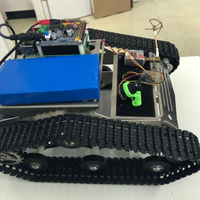Login
SubscribeEEG

Which Neurons Go to Sleep First in Humans? fMRI Can Tell
Alejandra Manjarrez, PhD | Aug 9, 2022 | 3 min read
By linking blood flow patterns to bioelectric signals in the brains of sleeping volunteers, scientists are studying the order in which brain regions fall asleep and wake up.

Anne Beaumanoir, Activist and Clinical Neurologist, Dies at 98
Natalia Mesa, PhD | Mar 29, 2022 | 3 min read
Beaumanoir helped Jews evade Nazis during World War II and aided resistance fighters during the Algerian War of Independence. She also contributed to the field of epileptology.

The Rise of BCI Enables Advances in Neuroscience
Jef Akst | Oct 1, 2020 | 10+ min read
A nascent but growing consumer market for brain-computer interface technology is driving the development of sleek new tools for decoding brain activity.

Infographic: Measurements that Predict People’s Behavior
Paul J. Zak | Oct 1, 2020 | 1 min read
Changes in blood levels of oxytocin and adrenocorticotropic hormone and patterns of neural activity predict how much money people will donate to a cause with high accuracy.

Image of the Day: Brain-Computer Interface Electrode
Emily Makowski | Oct 8, 2019 | 1 min read
A newly developed device can better measure brain waves such as those used to control a robotic car.

Karaoke-Sleep Study Links Disrupted REM With Poor Memory Processing
Katarina Zimmer | Jul 11, 2019 | 5 min read
An unusual experiment suggests that interrupted REM sleep can interfere with the amygdala’s ability to process emotional memories overnight—in this case, the distressing memories of listening to oneself sing out of tune.

Do Devices that Monitor or Zap the Brain Live Up to Their Claims?
Diana Kwon | Jun 18, 2019 | 8 min read
Direct-to-consumer neurotechnologies using EEG or tDCS are becoming increasingly popular, but some scientists are concerned about the lack of evidence for efficacy.

Can Humans Sense Magnetic Fields?
Carolyn Wilke | Mar 19, 2019 | 5 min read
A study of people’s brainwaves hints at their unconscious ability to perceive the Earth’s magnetic field.

General Anesthesia Causes Telltale Brain Activity Patterns
Emery N. Brown and Francisco J. Flores | Mar 1, 2019 | 10+ min read
The drugs lead to widespread, predictable changes in brain waves that can help anesthesiologists personalize anesthesia and develop anesthetic-based treatments.

Infographic: How General Anesthesia Works
Emery N. Brown and Francisco J. Flores | Mar 1, 2019 | 2 min read
Drugs that doctors use to sedate patients during traumatic medical procedures act on neural receptors to alter brain activity.

Image of the Day: In Sync
Carolyn Wilke | Jan 3, 2019 | 1 min read
At playtime together, parents’ brain activity mimics that of their infant children.

Researchers Develop New Strategy for Detecting Consciousness
Abby Olena, PhD | Nov 21, 2018 | 4 min read
The EEG-based method could help clinicians identify patients with severe brain injuries who are actually capable of some cognitive function, despite appearing unresponsive.

New Method Can Sense Babies’ Pain
Aggie Mika | May 5, 2017 | 2 min read
By measuring brain activity patterns, scientists can more objectively assess infant distress.

Scientists Identify More-Precise Neural Correlates of Dreaming
Ashley P. Taylor | Apr 10, 2017 | 3 min read
By examining brainwave patterns in a posterior cortical area, scientists can predict when people are dreaming.

Thoughts Derailed
Tanya Lewis | Apr 18, 2016 | 2 min read
The same brain mechanism by which surprising events interrupt movements may also be involved in disrupting cognition, according to a study.

Inside a Painter’s Brain
Ajai Raj | Oct 24, 2014 | 2 min read
Dean Cercone shares the cortical correlates of his creative process as part of a neuroscience-inspired exhibition.

Ballroom Brainwaves
Eli Chen | Mar 28, 2014 | 3 min read
A neuroscientist studies the brains of tango dancers in an attempt to understand interpersonal connectedness.

Disorder No More
Kerry Grens | Dec 1, 2013 | 4 min read
Researchers hunt for biomarkers of Asperger's syndrome, a condition that officially no longer exists.

Traces of Life
Abby Olena, PhD | Sep 24, 2013 | 2 min read
Researchers identify previously unrecognized neuronal activity in comatose human and feline brains.
